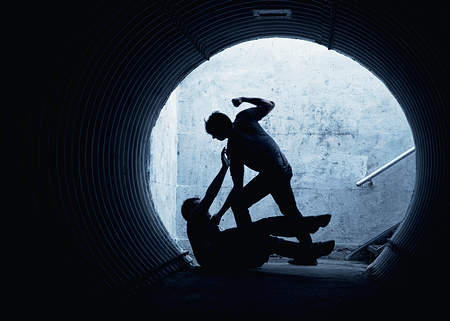
Pia Kotzur has been working as an editor at NetMoms since 2010 and has since been able to gain a lot of experience on what moves mothers in everyday life. After completing her studies in gender research and cultural studies, she delved into the cosmos of parent and family issues and now heads the NetMoms editorial team. Even part of a great (and sometimes challenging) patchwork family, they are particularly interested in unconventional family models. Her creed: If it feels right, then it is also good.
Dealing with disabled children changes all aspects of life – whether partnership or the relationship between siblings. Find out here how you master everyday life and how to deal with a disabled child.
In this article
How to properly deal with disabled children?
There is no godfather solution for dealing with disabled people – but the fact is that a physically or mentally impaired child needs a lot of attention and time. Depending on the need for care, this can affect the entire family, especially siblings. You get less “parental leave” due to a speech-disturbed or behavioral sibling. In our special about siblings we have summarized how they strengthen social skills and what you can do if your children are constantly arguing:
You can find out here why the exchange between siblings is so important.
Dealing with disabled siblings – that’s how it works
In order for the handling of the disabled sibling to develop well, you should note the following:
- Explain to your child what disability his sibling has and why some things in your family are different because of it. If your child understands this, he can accept the new situation more quickly.
- Do not always ask your child for loyalty and consideration when dealing with the disabled sibling. Show understanding if your child can’t always do it.
- Some parents see their healthy child as the "beacon of hope of the family", which should fulfill the parents’ expectations and wishes. Try to reflect on your child’s requirements as often as possible.
- Some parents develop an excessive fear after the birth of the disabled child that something may happen to their other child. Do not try to "protect" your child above all and let it cope with everyday life carefree.
- Since a disabled child takes a lot of time, the sibling can quickly feel neglected. So take your time for your other child and show them how much you love them.
- Don’t put pressure on your child with statements like, "When we’re gone, you’ll take care of your sister." You cannot put such a responsibility on your child.
Healthy children often put their needs in the background because they don’t want to be a burden for their parents. It can be unconscious that they build aggression against the disabled sibling or against themselves. Outbursts of anger and a certain aggression should therefore be allowed to express your child.
Dealing with disabled children – this is how the partnership succeeds
Many parents come across theirs when trying to cope with a disabled child border. So there is often little time left for yourself and your partner. The resulting distance and the stress can strain the partnership. You have to learn to fix the problems in your relationship and to communicate properly. Here are a few tips on how your partnership with a physically or mentally impaired child works:
- When dealing with disabled children, existing roles are often broken up and redistributed. Use this as an opportunity to redesign your relationship.
- Prevents mutual blame for your child’s disability.
- Talk to each other about your feelings – not only will you feel better afterwards, but your partner will also become aware that he is not alone with these feelings.
- Try yourself Free rooms to create for common recreation.
- Plan small breaks just for you – only in this way can you take a deep breath and clear your head in particularly stressful times to get.
- Many parents are reluctant to give their child to someone else’s hands – but still accept help and support from friends and relatives.
RELATED ITEMS
-

A person’s talent can have many facets. There are above-average talents in various areas. Social-emotional,…
-

Teach children how to deal with disabilities
I recently came across Raul’s side. A fairly well known, because really impressive man, who is so natural with his…
-

Migrate in children: what helps against it – baby and family
Children also suffer from migraine attacks: stress can trigger headaches. How parents can help their little ones This video explains…
-

Dealing with violent children and adolescents
Violent Children and Adolescents | ©: frenzelll – Fotolia Most children are peaceful and, at most, use physical devices to protect themselves…
